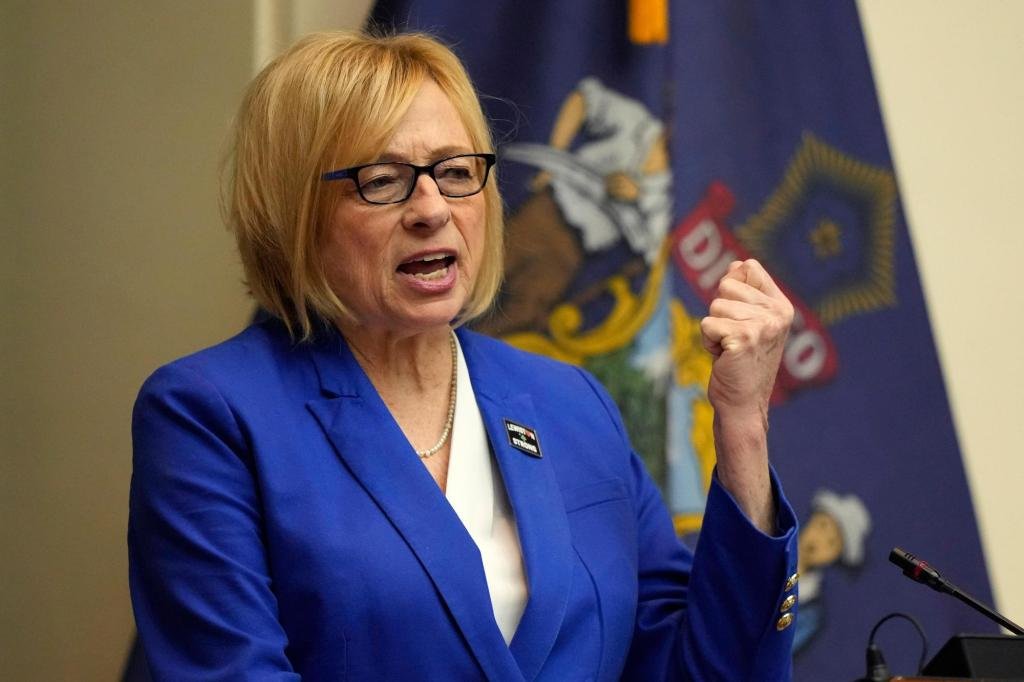Controversy Surrounding Social Security Administration’s Acting Commissioner
In a significant turn of events, the acting commissioner of the Social Security Administration (SSA) is facing intense scrutiny and calls for resignation after a controversial directive requiring Maine parents to obtain Social Security numbers for their newborns from federal offices rather than hospitals. Acting Commissioner Leland Dudek’s decision, made on March 5, was quickly rescinded but not before it shed light on potential political motivations behind it. Newly released emails indicate that Dudek’s decision may have been made in response to Maine’s Governor Janet Mills’ defiance against the Trump administration concerning federal funding related to transgender issues.
Allegations of Political Retaliation
The directive sparked widespread condemnation from various medical organizations and public officials who deemed it unnecessary and punitive. The longstanding practice, known as Enumeration at Birth, allows parents to register their newborns for Social Security numbers conveniently at birthing institutions. Representative Chellie Pingree of Maine was particularly vocal, stating that Dudek’s actions represented a political vendetta against Governor Mills. Pingree emphasized that such behavior undermines public trust in federal agencies, positing that if the SSA can act as a "political hit squad," it raises serious concerns over checks on executive power.
Governor Mills’ Response
In light of the SSA’s actions, Governor Mills expressed her discontent, calling the agency’s directives “rushed and reckless” and stressing the need for leadership that treats Social Security as a public trust. With a significant number of Maine residents relying on Social Security benefits, Mills articulated that Social Security represents a covenant between the government and the people, highlighting the need for the agency to honor that commitment.
Calls for Accountability
In a parallel response, Representative Gerry Connolly of Virginia, who serves as the ranking member of the House Oversight Committee, formally requested Dudek’s resignation and sought an interview regarding the circumstances leading up to the controversial contracts cancellation. Connolly’s letter argued that Americans deserve clarity surrounding Dudek’s motivations and the implications of his actions on Maine’s residents. According to Connolly, internal emails obtained by the committee suggest that the order was retaliatory in nature, demanding accountability for potential mismanagement.
Dudek’s Justification
On March 18, Dudek attempted to clarify his actions during a press call, stating that the cancellation of the Maine contracts was a mistake made out of concern about the contract’s validity. He noted feeling upset by the governor’s treatment and acknowledged that he should have consulted his staff before making such a significant decision. In his defense, Dudek claimed he is not interested in political retaliation; rather, he aims to serve the public interest. Nonetheless, his remarks failed to quell criticism, as many maintain that the implications of his decision had far-reaching consequences.
Broader Context of Federal Relations with Maine
The controversy is set against a backdrop of heightened tensions between the Trump administration and Governor Mills, particularly surrounding Title IX regulations concerning transgender athletes. Governor Mills’ commitment to defending her state against these federal threats has led to investigations by federal agencies, compounding the political strife. Recent actions by the U.S. Department of Agriculture further escalate this situation, as federal funds for certain Maine educational programs have been paused due to allegations of Title IX noncompliance. As this situation unfolds, both Maine officials and the SSA remain under scrutiny, with calls for transparent governance and responsible agency leadership growing louder.
In summary, the fallout from Dudek’s directive not only highlights issues within the Social Security Administration but also raises broader questions about the intersection of politics and public service in federal agencies. Advocates for Maine’s citizens continue to call for accountability and reform, illustrating that the stakes are high when government actions intertwine with personal lives and community trust.





